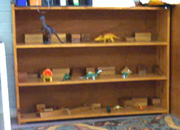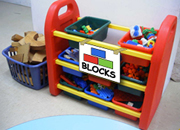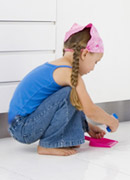Behaviour
Caring for babies
Bottle feeding
Changing a nappy
Cleaning and sterilising bottles
Daily cleaning tasks
Helping new children settle in
Preparing for a nappy change
Sleep patterns – babies
Sleep routines – babies
Toilet training
Caring for children
Allowing time for practice
Dressing/undressing
Mealtimes
Nappy change
Packing away/caring for the environment
Sleep/rest time
Toileting
Common self-help milestones
Tips for sleep and rest time
Self image
Communication
Body language
Limits and guidelines
Ways children communicate
Greeting children and families
Modelling appropriate communication
Questioning
Verbal and non–verbal communication
Acknowledging children's feelings
Listening attentively
Communicating with Aboriginal and Torres Strait Islander parents/carers
Development
Allowing time for practice
Dressing/undressing
Mealtimes
Nappy change
Packing away/caring for the environment
Sleep/rest time
Toileting
Common self-help milestones
Creative development
Language development
Modelling positive relationships
Physical development
Sharing and taking turns
Sleep patterns – babies
Sleep routines – babies
Encourage independent problem solving
Fundamental movement skills
Health, hygiene and safety
Coping with stress
Correct manual handling principles
Daily cleaning tasks
Hand washing
Hand washing poster
Manual handling overview
Toilet training
Safety checklist
Learning experiences and play
Environmentally friendly learning experiences
Learning experiences for different development areas
Creative resource materials
Arranging the environment to facilitate learning and pleasure
Indoors and outdoor areas
Creating a positive physical environment
Legal and ethical issues
Child abuse case studies
How do I recognise when a child or young person is at risk?
Tips on dealing with disclosures
Observation methods
Arranging Experiences (PDF 351Kb)
Recording observations
Rules for making observations
What you can learn from observations
Programming
Children’s interests, strengths, needs and skills
Extending the children’s interest in dinosaurs
Objective observation
Planning an OSHC environment
Behavior management plan
Planning enjoyable experiences
Planning experiences for 0 - 2 years age group
Planning experiences for 2 - 3 years age group
Planning experiences for 3 - 5 years age group
Building self-help skills: packing away/caring for the environment
Routines provide many opportunities for developing a child's self-help skills. There are also other learning experiences that you can use to build and practice these skills, for instance, packing away the toys and equipment in the room is a daily learning experience that you can use self-help skills.
For all groups, regardless of age, you need to remember to:
- allow plenty of time to pack things away
- use lots of positive encouragement
- be a good role model.
You will, of course, need to take into account the developmental stages of children and organise the packing away activities in accordance with their age or developmental stage.
For infants

- store toys and equipment on low shelving
- use songs and rhymes to encourage participation.
For toddlers

- use songs and rhymes to encourage participation
- have picture cards to match games and toys so children can recognise where each item goes
- encourage older toddlers to be 'helpers' or to do specific tasks.
3 - 5 year olds

- ask children to choose which areas they would like to pack away
- provide child-size equipment (eg, broom and mop) and encourage children to clean up after themselves
- talk to the children about caring for the room and equipment.